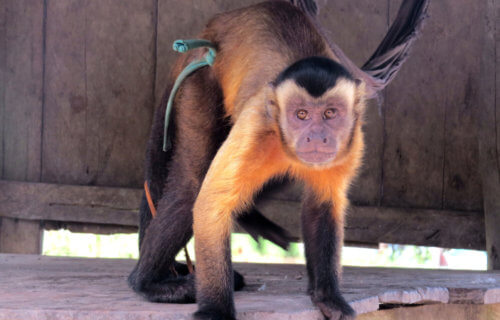OXFORD, United Kingdom — While the precise origins of COVID-19 remain a mystery, most health experts agree that the virus made the jump from animal(s) to humans at some point before the pandemic began. Despite this clear sign that mankind must do a better job of mitigating the risk of animal-to-human disease transmission, a troubling new study finds the online illegal wild animal trade is still going strong.
Researchers from Oxford Brookes University and the University of Western Australia say the illegal wildlife trade has found a new home on social media. Traders are allegedly selling animals as “lockdown pets,” the team concludes after analyzing around 20,000 Facebook posts.
In light of these findings, study authors urge social media companies to police and regulate these “markets” much more closely. They add that doing so may help us all avoid another pandemic.
Animals and human disease have a long history
The role of animals in human diseases is nothing new. Scientists have previously confirmed human-animal transmission during past SARS and MERS coronavirus outbreaks. Wuhan, China’s “wet market” is believed to be COVID-19’s epicenter by many. To this point however, there is still no definitive proof pointing to that market as the location where SARS-CoV-2 first jumped to humans.
Despite all of this, study authors say there is no evidence suggesting online animal trading has even slowed down in the wake of the pandemic. Facebook listings in Brazil and Indonesia, for example, contain hundreds of posts advertising wild animals for sale. Researchers estimate those listings reach an audience of over 200,000 Facebook users. Moreover, only 0.44 percent of all studied animal posts mentioned COVID-19 at all.
“We anticipated that we would see many posts mentioning COVID-19 regarding the potential dangers of wildlife trade or using it as a reason for a temporary cessation of sales. Instead, advertisements mentioning COVID-19 often stimulated wildlife trade, suggesting the pandemic was a great time to buy an exotic pet for companionship, for example,” says study co-author and Professor of Primate Conservation Anna Nekaris in a university release.
‘Not only does wildlife trade continue, monitoring it nearly impossible’
The study finds absolutely no instances recorded of either sellers or buyers mentioning the role of wild animal sales in the spread of disease. Instead, these conversations usually included topics like discounts and home delivery options.
“Clandestine markets often expand to supply the demand that still exists and in that case, not only does wildlife trade continue, monitoring it becomes nearly impossible,” adds study co-author and PhD student Thais Morcatty.
“The links between wildlife trade and infectious disease are very concerning, however, what we find is that purely focusing on the risk of transmission as justification for widespread bans may not be effective on the ground. In order to have meaningful change that protects wild species and humans, it is imperative that we take into account the nuance and complexity of the situations and listen to what the traders themselves are telling us,” concludes study co-author Kim Feddema, a PhD student at the University of Western Australia.
The study is published in Environmental Research.
